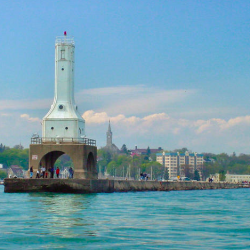
Hotels are known as places of comfort and relaxation, offering a temporary home for travelers and vacationers alike. However, with their large number of guests and complex infrastructure, hotels face unique risks, including the potential for fire hazards. As such, fire inspections play a crucial role in ensuring the safety and security of guests, staff, and the property itself. In this article, we will delve into the importance of fire inspections in hotels, exploring the benefits they provide and the key aspects they cover.
Preventing Potential Fire Hazards
Fire inspections serve as a proactive measure to identify and mitigate potential fire hazards within hotel premises. These inspections typically involve a thorough assessment of the property’s fire safety systems, including fire alarms, sprinkler systems, emergency exits, and fire extinguishers. By identifying any deficiencies or malfunctions in these systems, fire inspections help hotel management take necessary steps to rectify them promptly. This proactive approach reduces the likelihood of fire incidents and ensures the safety of guests and staff.
Compliance with Fire Safety Regulations
Hotels, like any other public buildings, are subject to fire safety regulations enforced by local authorities. Fire inspections play a crucial role in ensuring that hotels comply with these regulations. Inspectors assess various aspects of the hotel’s fire safety protocols, such as the availability and functionality of fire exits, emergency lighting, smoke detectors, and fire-resistant materials. Compliance with these regulations not only keeps the guests safe but also protects the hotel from legal liabilities and potential fines.
Protecting Human Lives
One of the primary reasons for conducting fire inspections in hotels is to safeguard human lives. Hotels often accommodate a large number of guests, and in the event of a fire, the rapid evacuation of everyone becomes paramount. Fire inspections evaluate the hotel’s evacuation plans, emergency lighting, signage, and the condition of fire exits. By identifying potential bottlenecks or deficiencies in these areas, inspections enable hotel management to enhance evacuation procedures, ensuring a quick and orderly exit during an emergency. This can significantly minimize the risk of injuries or casualties.
Ensuring Staff Training and Preparedness
In addition to the safety of guests, fire inspections also focus on the training and preparedness of hotel staff. Inspectors review the hotel’s fire safety training programs, checking if the staff is adequately trained in fire prevention, evacuation procedures, and the use of fire extinguishers. A Fire Inspections Texas business owner told me regular fire inspections encourage hotels to maintain updated training programs and ensure that employees are well-versed in fire safety protocols. Well-prepared staff can respond effectively during emergencies, helping to control small fires before they escalate and supporting guests in evacuating the premises safely.
Preservation of Property and Business Continuity
A fire incident in a hotel can have severe consequences, both in terms of property damage and business continuity. Fire inspections help identify potential fire risks, such as faulty electrical systems, improper storage of flammable materials, or inadequate fire-resistant construction. By addressing these risks early on, hotels can minimize the potential for extensive property damage in case of a fire. Additionally, fire inspections may uncover deficiencies in fire insurance coverage, allowing hotel management to make necessary adjustments to mitigate financial losses in the event of a fire-related incident.
Reassuring Guests and Enhancing Reputation
Safety is a top concern for hotel guests, and fire inspections play a crucial role in establishing and maintaining a hotel’s reputation for safety and security. Hotels that undergo regular fire inspections can proudly display their compliance and commitment to guest safety. This not only reassures potential guests but also enhances the hotel’s reputation as a responsible and trustworthy establishment. Positive word-of-mouth recommendations and online reviews highlighting the hotel’s commitment to fire safety can significantly contribute to its success.
Conclusion
Fire inspections are an essential component of maintaining a safe and secure environment in hotels. By identifying potential fire hazards, ensuring compliance with fire safety regulations, protecting human lives, and enhancing staff training, these inspections significantly reduce the risk of fire incidents. Additionally, they help safeguard the property, ensure business continuity, and contribute to a hotel’s positive reputation. The investment in fire inspections not only benefits guests and staff but also demonstrates the hotel’s commitment to their well-being. Ultimately, fire inspections are an integral part of responsible hotel management, fostering an environment where guests can relax and enjoy their stay without compromising on their safety.

